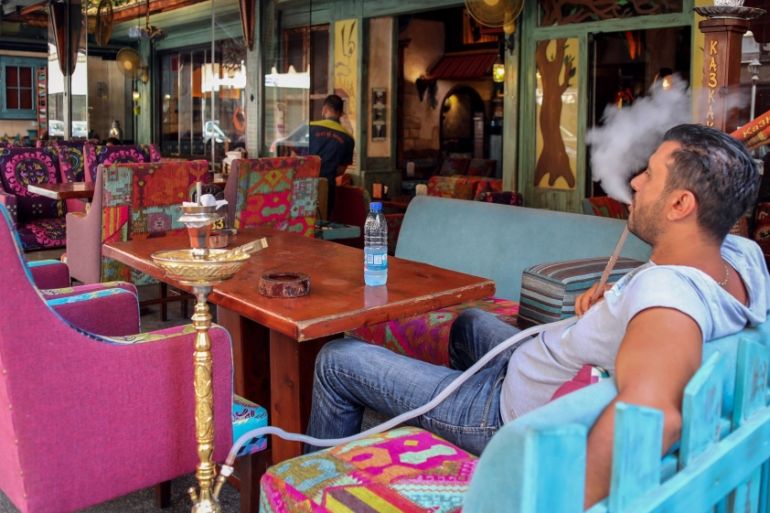Lebanon’s electricity problems are poised to become much worse
Delinquent payments and a lack of hard currency to buy fuel oil for state power plants could trigger more outages.

Lebanon’s power supply has been erratic for years, but the economy’s meltdown may make it a lot worse.
The government has fallen behind on payments to a Turkish company responsible for a quarter of the country’s electricity-generation capacity. It’s also struggling to access enough foreign exchange to purchase imports of fuel for state-owned power plants. Together, these stumbles could lead to more outages and pain for businesses already reeling from 90% inflation.
Keep reading
list of 4 items‘I blame the government’: Poor Kenyans say no support amid record flooding
‘We need you’: Solomon Islands’ support for US agency’s return revealed
‘Triple spending’: Zimbabweans bear cost of changing to new ZiG currency
The Turkish firm, Karpowership, has anchored two floating power vessels off Lebanon’s Mediterranean coast since 2013, providing around 400 megawatts of electricity. They’ll continue to operate for now, according to the family-owned company’s chief commercial officer. But its contract expires in 2021 and the two sides are yet to discuss an extension.
“We chose not to suspend power generation as long as fuel is delivered” to the ships by Lebanon’s state electricity provider, the CCO, Zeynep Harezi, said in an interview. “That being said, we will hope that Lebanon will be able to get back on their feet soon and catch up on their payments.”
She declined to say how much money Lebanon owed.
A spokesperson for the Energy Ministry didn’t immediately respond to a request for comment.
A spat between Beirut and Algerian state energy firm Sonatrach has already disrupted supplies of fuel oil, a petroleum product used to generate much of Lebanon’s power. The government said last month it will stop buying fuel from Sonatrach after claiming one of its shipments had quality defects. The company denied any wrongdoing.
Separately, Lebanon’s made little progress persuading the likes of Siemens AG, General Electric Co. and Ansaldo Energia SpA to build new power stations, according to local media reports.
“The last power plant to be installed in Lebanon was commissioned in 1999,” said Beirut-based independent energy consultant Jessica Obeid. “They’re so old, they’re inefficient.”
Lebanon has little chance of attracting foreign investment into electricity until it can seal a bailout from the International Monetary Fund, according to Economy Minister Raoul Nehme. Talks between the two sides have stalled over issues such as subsidy cuts and asset writedowns at Lebanese banks.
“Frankly, nobody is going to invest $1 before we have an IMF deal,” he said in an interview with Bloomberg Television aired on Tuesday.
Lebanon’s not the only Middle Eastern nation facing acute power problems. The head of the International Energy Agency, which advises the world’s richest economies on energy policy, warned Iraq this week that protests in the country could worsen unless it quickly improves electricity supply.